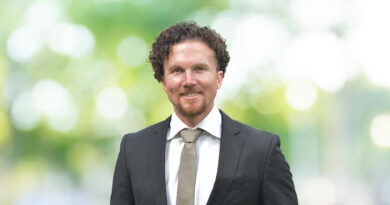How journalists should cover the crazies
As we often do, we had a newsroom conversation this week about who deserves coverage and who does not.
There seem to be an increasing number of folks who grab headlines based on outrageous claims, following the lead, perhaps, of U.S. President Donald Trump, who clearly feels the need to dominate every news cycle.
The media has been criticized for allowing Trump to spout lies. Journalists have taken to fact-checking him in real time, but many critics ask why we bother quoting him at all when so much of it is obviously manipulative and untrue.
The same challenge faces news organizations locally. Shall we cover, for example, events here organized by a local chapter of a group that opposes wearing masks publicly indoors during the pandemic? Members claim, against all evidence, that wearing masks is more harmful than helpful, and say related laws restrict their “freedoms.”
They join legions of others over the years who buck scientific research and decades of documentation that shows vaccinations save lives and improve society.
Others, including some wacky politicians, oppose fluoride in municipal water systems despite clear proof it prevents tooth decay, promotes health across society, and saves us all a lot of time and money, individually and as a society.
When news reports note these people, journalists get criticized for even mentioning them. But journalists are caught between the fear of breathing oxygen into conspiracy theories, and the need to record history and promote healthy debate.
We try not to write about events held by racists, bigots or those who promote intolerance, but we watch them, accepting the fact that sometimes we are forced into coverage.
After all, we talk a lot about balance and bias and trust, but the concept of false equivalence or false balance is becoming more difficult to ignore. The crazies already have an outsize profile on social media.
Meanwhile, I increasingly wonder if it matters. Most legitimate news agencies accept the moon landings, for example, as fact, and feel no obligation to quote those who insist it’s a hoax, but there are a shocking number of people in our communities who believe it was all an elaborate publicity stunt.
Some are innocently drawn into such webs, but others spout such untruths — and many far more dangerous ones — to gain a profile, like a drunk in a barroom who hasn’t done enough homework. Still others have more malign intent for political or financial reasons.
It is all so depressing, and another layer of complexity that journalists must negotiate as we seek truth and your trust.
Loading…
Loading…Loading…Loading…Loading…Loading…
*** This article has been archived for your research. The original version from TheSpec.com can be found here ***



